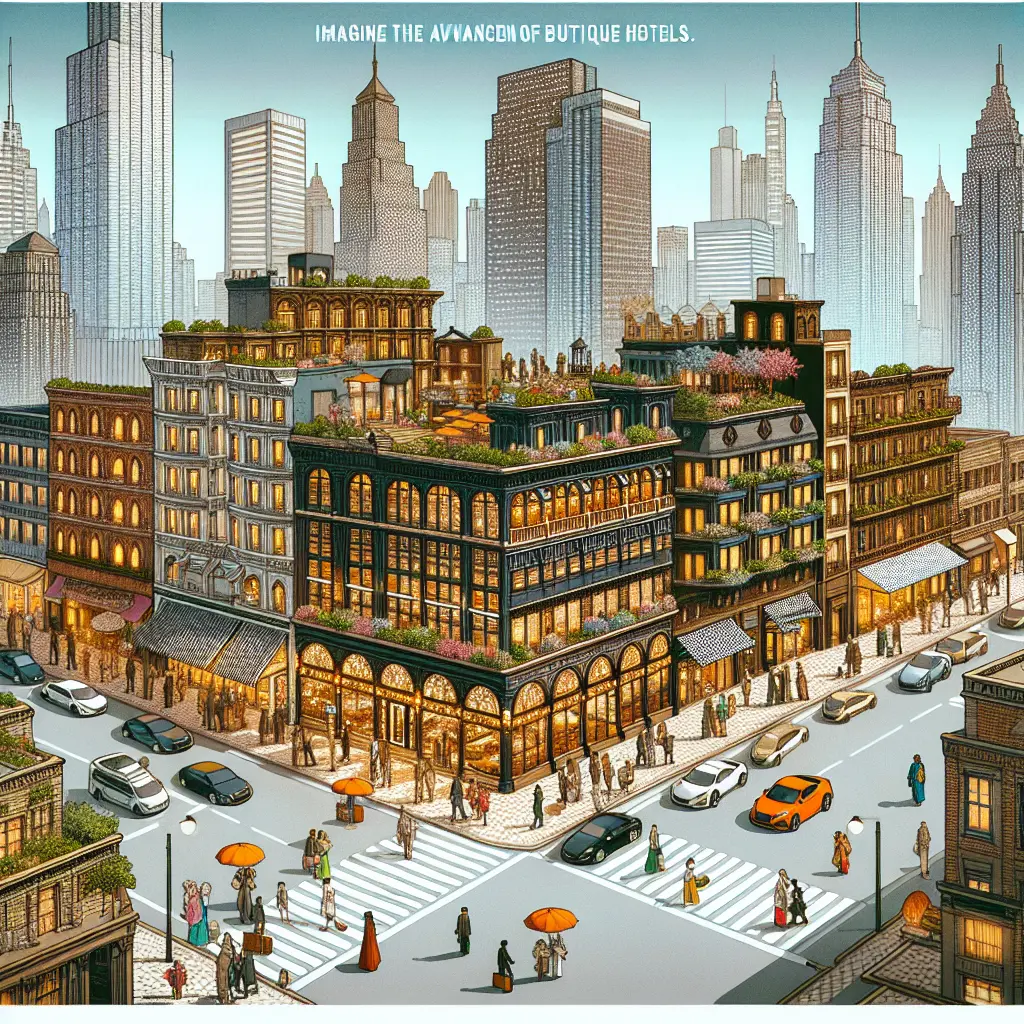In the dynamic world of hospitality, the rise of boutique hotels has captured the imagination of travelers and industry analysts alike. These establishments, known for their personalized service and unique design, are becoming increasingly popular in urban landscapes. This shift signifies not just a change in consumer preferences but also a broader evolution in the boutique hotel industry.
Boutique hotels, smaller in scale but rich in character, offer a distinct contrast to the one-size-fits-all approach of larger chains. The appeal of boutique accommodations lies in their ability to provide a more intimate and culturally immersive experience. In bustling city environments, these hotels carve out serene havens that reflect the local flavor, from restored historic buildings to cutting-edge modern designs.
The boutique hotel market growth is particularly notable in urban areas where space is at a premium and uniqueness is highly valued. Travelers are increasingly drawn to hotels that can offer an experience, not just a place to stay. This trend is evident in various cities where the landscape is dotted with such establishments, each telling its own unique story through its architecture and interior ambiance.
The boutique hotel trends are constantly evolving, driven by a desire to stand out in a competitive market. Modern boutique hotels often incorporate elements like sustainable practices and technology-driven services, appealing to the eco-conscious and tech-savvy traveler. The design of these hotels often reflects a deep respect for the urban fabric they inhabit, integrating elements of the past and present in a seamless narrative that captivates guests.
In recent years, there's been a notable trend towards converting old, character-rich buildings into luxury boutique hotels. This not only preserves historical architecture but also offers guests a slice of history, enriched with modern comforts. An example can be found in the history of Harford’s Prohibition era, where speakeasy secrets add layers of intrigue to the guest experience. More about this can be explored through local historical societies and archives that detail Harford's colorful past during Prohibition.
Challenges and Opportunities
Operating small hotels in urban areas comes with its set of challenges. High real estate costs and regulatory hurdles can be significant barriers. However, the potential rewards are considerable. The unique positioning of boutique hotels allows them to charge a premium for the distinctiveness and personalized service they offer.
The boutique hotel industry also faces competition from other sectors like the vacation rental market, which has recently increased its lobbying efforts in the U.S. to face stiffer regulation. This competitive pressure pushes boutique hotels to continually innovate and enhance their value proposition to stay relevant and appealing to travelers looking for unique urban hotels.
Boutique hotels often play a significant role in revitalizing neighborhoods and stimulating local economies. By attracting tourists who seek authentic experiences, these hotels increase foot traffic to local businesses and cultural sites. The rise of boutique hotels has also encouraged local artisans and designers, as many establishments showcase local art and products, further embedding themselves into the fabric of the urban landscapes they inhabit.
While discussing the charm and appeal of boutique hotels, it is also essential to touch upon safety and security—a paramount concern for all hospitality establishments. Recent incidents, such as the tragic accident involving Jaymi Hensley's fiancé at a hotel, underscore the need for stringent safety measures and protocols to protect guests and staff alike. These incidents serve as somber reminders for the industry to maintain high safety standards.
Looking Ahead
As we look to the future, the trajectory of the boutique hotel industry seems poised for continued innovation and growth. With city boutique hotels increasingly becoming the go-to choice for discerning travelers, their influence on the hospitality market is undeniable.
The continued expansion of this sector is likely driven by several factors including an increasing desire among travelers for authenticity and personalized experiences, coupled with a growing appreciation for design and sustainability. This is complemented by economic strategies from city planners and developers who see the value in promoting tourism that aligns with cultural preservation and urban development.
The rise of boutique hotels is more than just a passing trend; it is a reflection of changing consumer preferences towards more personalized, meaningful travel experiences. As urban landscapes continue to evolve, these small yet impactful establishments are redefining what it means to stay in a hotel, turning every trip into an unforgettable story.
Thank you for joining me on this exploration into the fascinating world of boutique hotels. Until next time, keep traveling uniquely.









Leave a Comment